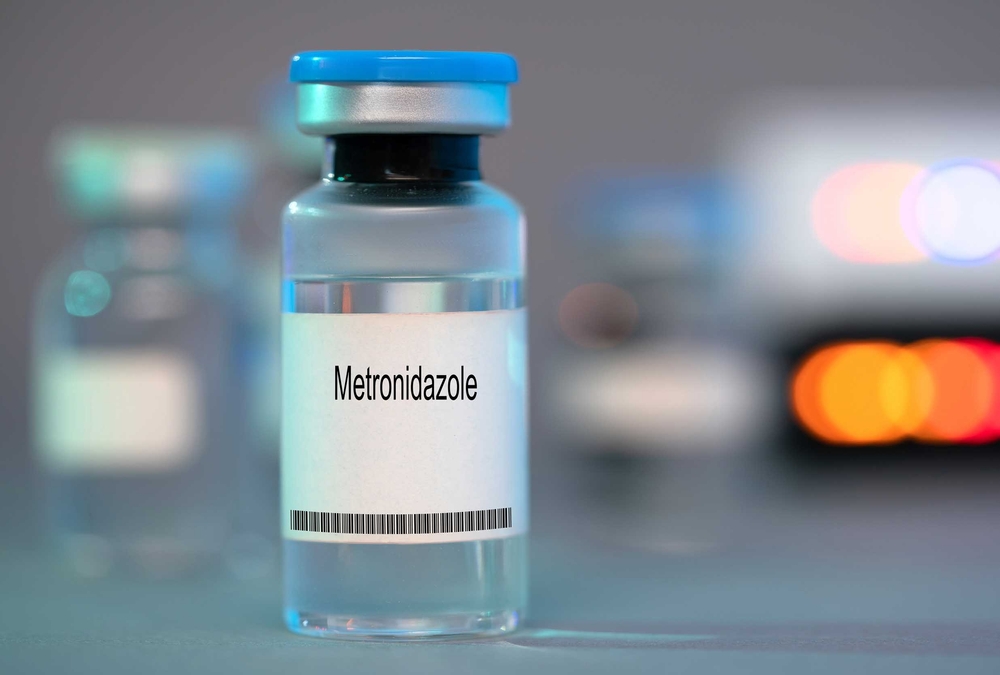The data is current and up-to-date in accordance with the newest veterinarian research.
Learn more »
Metronidazole is a standard medication found on the shelves of veterinary hospitals and pharmacies. This antibiotic is used to treat several different disorders and has been very precious to veterinary patients, although its use in dogs and cats is taken into account extra-label in the US. So, proceed reading below to learn concerning the dosages, uses, and potential unintended effects of this medication for cats specifically.
What Is Metronidazole?
Metronidazole, or Flagyl, is an antimicrobial and antiprotozoal drug often used to treat conditions that cause diarrhea. This medication is advantageous against common protozoan parasites including Giardia and anaerobic bacteria. Along with infectious causes, it has been helpful in controlling inflammatory bowel disease and hepatic encephalopathy. Metronidazole has anti-inflammatory effects.
Dosing recommendations vary depending on the illness being treated. Care needs to be taken to manage the medication as prescribed by the provider.
It’s also essential to follow storage information found on the medication packaging, as storage recommendations may differ between compounded products.
Image Credit: luchschenF, Shutterstock
How Is Metronidazole Given?
Metronidazole will be given orally as either a liquid, capsule, or tablet. It’s also available in an injection form to be used inside a hospital setting. Metronidazole is commonly bitter and will be difficult to disguise the taste, making it difficult to manage, especially to cats. Compounded metronidazole benzoate is more readily accepted by cats, because it is less bitter.
Generally, Metronidazole is given twice every day. Some conditions requiring long-term treatment with Metronidazole may do well with once-daily dosing. Within the event of an accidental overdose, contact your veterinarian.
Potential Side Effects of Metronidazole
What Happens if You Miss a Dose?
If a dose of metronidazole is missed, you possibly can give it when it’s remembered, but then you will need to wait the really helpful interval before the following dose is given. Don’t double up on doses.
Risk of Metronidazole Toxicity
Some animals may experience neurotoxicity from metronidazole. That is most definitely to occur in animals on high doses of the drug, following an accidental overdose, or those that receive Metronidazole for prolonged periods of time. Signs of neurotoxicity include nystagmus, seizures, and a head tilt, amongst other signs. If that is noted in your pet while on metronidazole, discontinue and reach out to your prescribing veterinarian.
Image Credit: megaflopp, Shutterstock
Precautions
This medication needs to be used with caution in animals with liver disease. Animals with liver concerns should receive a reduced dose. Severe renal impairment patients may require a lower dose as well. Metronidazole administration needs to be avoided in pregnant animals.
Drug Interactions
Care needs to be taken if administering Metronidazole concurrently with the next drugs, and your veterinarian needs to be consulted:
- Barbiturates (Phenobarbital)
- Phenytoin
- Warfarin
- Cimetidine
- Terfenadine
- Vitamin K Antagonist
- Lithium
- Calcineurin inhibitors
- Cyclosporine
Steadily Asked Questions
Is It Protected to Use Metronidazole in a Pregnant Cat?
No, it is just not really helpful to make use of Metronidazole in pregnant animals, as it may well cause birth defects.
Should This Medication Be Given With Food?
This medication needs to be taken with food to reduce the danger of gastrointestinal upset.
If Neurotoxicity Occurs, Are the Signs Everlasting?
Signs of neurotoxicity can resolve once the medication has been discontinued. This could take several days to weeks. Diazepam might help improve clinical signs quicker. Rarely is neurotoxicity from Metronidazole fatal.
In Summary
Metronidazole is a commonly utilized antibiotic/antiparasitic agent. The chance of neurotoxicity exists, but this is usually the results of prolonged dosing or the usage of high doses. It’s important to debate any medications your pet is on together with your prescribing veterinarian before starting Metronidazole or every other medication. Close commentary of your pet is really helpful while on Metronidazole to make sure improvements are being noted to clinical signs and to watch for opposed effects.
Featured Image Credit: Sonis Photography, Shutterstock






